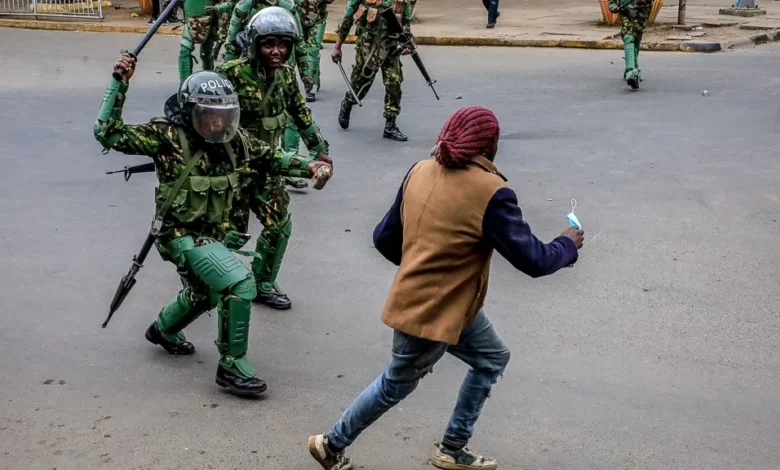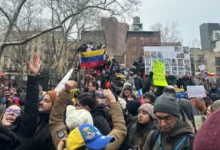Kenya police ban protests in capital

Kenya police have banned protests in the centre of the capital, Nairobi, and surrounding areas “until further notice”, citing their leaderless nature that has made it difficult to enforce safety.
It comes after a month of anti-government protests in which scores of people have been killed. More protests are planned for Thursday.
Nairobi city centre has been the heart of the youth-led protests, which have also taken place across the country.
The protests began against unpopular tax rises but after they were withdrawn have broadened out, including demands for President William Ruto to resign.
Online posters calling for people to gather on Thursday at Uhuru Park in the city centre, before matching to State House, the president’s official residence.
Late on Wednesday, the police said “no demonstrations will be permitted in the Nairobi Central Business District and its surroundings until further notice to ensure public safety”.
The ban has sparked outrage online with some arguing that the police do not have such powers, as Kenyan law gives citizens the right to hold demonstrations.
There is already a heavy police presence in the capital in anticipation of the protests.
Acting head of police, Douglas Kanja, said in a statement that the decision was taken after receiving “credible intelligence that organised criminal groups are planning to take advantage of the ongoing protests”.
“Criminals have continued to infiltrate the protesting groups, resulting in a troubling trend of disorderly and destructive conduct,” it said.
It added that its decision had also been informed by “the lack of designated leadership in previous demonstrations” that had “made it difficult to enforce safety protocols”.
Since the protests began, the president has caved in to some of the protester’s demands, including dropping the contentious finance bill and firing his entire cabinet.
The head of the police also resigned.
But people have been calling for more action against bad governance and corruption and for police to account for the deaths of dozens of demonstrators at recent rallies.
At least 50 protesters have been killed and 413 injured since the protests started on June 18, according to the state-funded Kenya National Commission on Human Rights.
—BBC







